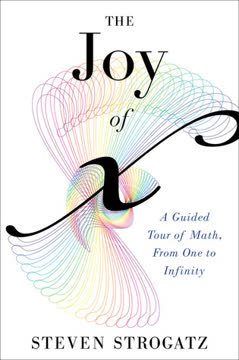Key Takeaways
1. Mathematics: The Language of Patterns and Relationships
Numbers are wonderful shortcuts.
Nature's code. Mathematics is the universal language that describes patterns and relationships in the world around us. It's not just about arithmetic or solving equations, but a way of thinking that allows us to understand and predict natural phenomena. From the spirals in a sunflower to the orbits of planets, mathematics provides a framework for describing the underlying order in seemingly chaotic systems.
Abstraction and application. The power of mathematics lies in its ability to abstract complex real-world situations into simpler, more manageable models. This abstraction allows us to solve problems in one domain and apply those solutions to entirely different fields. For example, the same mathematical principles used to describe the flow of water can be applied to understand traffic patterns or the spread of diseases.
Key mathematical concepts:
- Patterns and relationships
- Abstraction and modeling
- Universal applicability
2. From Counting to Infinity: The Evolution of Numbers
Prime numbers are divisible only by 1 and by themselves.
Expanding number systems. The concept of numbers has evolved dramatically throughout history, from simple counting to the complex number systems we use today. This evolution reflects our growing understanding of the world and our need to describe increasingly abstract concepts.
The infinite and the infinitesimal. One of the most profound developments in mathematics was the incorporation of infinity and infinitesimals. These concepts, once considered paradoxical, are now fundamental to calculus and our understanding of continuous processes. The ability to work with infinity has allowed mathematicians to solve problems that were once thought impossible.
Evolution of number systems:
- Natural numbers (counting)
- Integers (including negative numbers)
- Rational numbers (fractions)
- Irrational numbers (e.g., π, √2)
- Real numbers
- Complex numbers
3. Algebra: Solving for X and Working with Formulas
A page is good insofar as good pages link to it.
The language of relationships. Algebra provides a powerful toolset for describing relationships between quantities. By using variables and equations, we can express complex ideas in a concise, manipulable form. This abstraction allows us to solve problems that would be intractable using arithmetic alone.
From ancient to modern. Algebraic thinking has evolved from solving simple word problems to underpinning modern technologies. The same principles that allowed ancient mathematicians to calculate inheritances now form the basis of algorithms that power search engines and recommendation systems.
Key algebraic concepts:
- Variables and equations
- Functions and relationships
- Solving for unknowns
- Modeling real-world problems
4. Geometry: Logic, Intuition, and the Nature of Space
Topology shines a spotlight on a shape's deepest properties—the properties that remain unchanged after a continuous distortion.
Bridging intuition and logic. Geometry provides a unique blend of visual intuition and rigorous logic. It allows us to reason about space and shape in ways that are both intellectually satisfying and practically useful. From the Pythagorean theorem to non-Euclidean geometries, geometric thinking has profoundly influenced our understanding of the physical world.
Beyond flatland. Modern geometry extends far beyond the study of shapes on a plane. Topology, for instance, explores properties that remain unchanged under continuous deformations, leading to insights in fields as diverse as data analysis and theoretical physics.
Geometric concepts and applications:
- Euclidean geometry: lines, angles, shapes
- Non-Euclidean geometries: curved spaces
- Topology: properties invariant under deformation
- Applications: architecture, computer graphics, cosmology
5. Calculus: The Mathematics of Change and Motion
Calculus is the mathematics of change.
The language of physics. Calculus provides the mathematical framework for describing change and motion. It allows us to analyze and predict dynamic systems, from the orbit of planets to the spread of epidemics. The fundamental concepts of derivatives and integrals provide powerful tools for understanding rates of change and accumulation.
Infinity tamed. At its core, calculus deals with processes involving infinitely small quantities or infinite sums. By developing rigorous methods for working with these concepts, mathematicians were able to solve problems that had baffled thinkers for centuries. This "taming" of infinity has had profound implications across science and engineering.
Key calculus concepts:
- Derivatives: rates of change
- Integrals: accumulation and area
- Limits: dealing with infinity
- Applications: physics, economics, optimization
6. Probability and Statistics: Making Sense of Randomness
Things that seem hopelessly random and unpredictable when viewed in isolation often turn out to be lawful and predictable when viewed in aggregate.
Quantifying uncertainty. Probability and statistics provide tools for understanding and making decisions in the face of uncertainty. These fields allow us to analyze data, test hypotheses, and make predictions about complex systems where individual outcomes may be unpredictable.
From gambling to big data. Originally developed to understand games of chance, probability and statistics now play crucial roles in fields ranging from scientific research to business analytics. The ability to extract meaningful patterns from large datasets has become increasingly important in our data-driven world.
Key concepts in probability and statistics:
- Probability distributions
- Statistical inference
- Hypothesis testing
- Data analysis and visualization
7. The Power of Mathematical Thinking in the Real World
Mathematics is the most powerful tool humanity has ever created for making sense of the material world.
Problem-solving mindset. Mathematical thinking extends far beyond solving equations. It provides a structured approach to problem-solving that can be applied in many areas of life. By breaking complex problems into simpler components, identifying patterns, and reasoning logically, we can tackle challenges more effectively.
Interdisciplinary impact. The power of mathematics lies in its ability to describe fundamental patterns that appear across diverse fields. From optimizing supply chains to understanding social networks, mathematical models provide insights that drive innovation and decision-making in business, technology, and policy.
Real-world applications of mathematics:
- Finance and economics
- Computer science and artificial intelligence
- Engineering and technology
- Social sciences and policy-making
- Medicine and healthcare
- Environmental science and climate modeling
Last updated:
FAQ
What's "The Joy of X" by Steven H. Strogatz about?
- Guided tour of math: The book is a guided tour through the elements of mathematics, from basic arithmetic to advanced concepts like calculus and complex numbers.
- Math's beauty and utility: It aims to show the beauty and utility of math, explaining why it is so enthralling to those who understand it.
- Real-world applications: The book connects mathematical concepts to real-world scenarios, such as Michael Jordan's dunks explaining calculus fundamentals.
- Accessible to all: It is designed for anyone who wants a second chance at understanding math, from an adult perspective.
Why should I read "The Joy of X"?
- Rekindle interest in math: It offers a chance to rediscover math in a more engaging and less intimidating way than traditional education.
- Understand math's relevance: The book demonstrates how math is relevant in everyday life, from flipping mattresses to understanding stock market swings.
- Enjoyable learning experience: Strogatz uses humor and storytelling to make complex mathematical ideas accessible and enjoyable.
- Broaden your perspective: It provides insights into how math shapes our understanding of the world, from the smallest particles to the vastness of the universe.
What are the key takeaways of "The Joy of X"?
- Math is everywhere: Math is present in various aspects of life, from nature to technology, and understanding it can enhance our perception of the world.
- Conceptual understanding: The book emphasizes understanding mathematical concepts rather than just memorizing formulas.
- Interconnectedness of math: It shows how different areas of math, like algebra and geometry, are interconnected and build upon each other.
- Math's creative side: Strogatz highlights the creativity involved in solving mathematical problems and constructing proofs.
How does Steven H. Strogatz explain complex numbers in "The Joy of X"?
- Imaginary numbers introduction: Complex numbers are introduced through the concept of imaginary numbers, defined by the square root of -1, denoted as 'i'.
- Visual representation: Strogatz explains complex numbers using a two-dimensional plane, with real numbers on one axis and imaginary numbers on the other.
- Applications in engineering: The book discusses how complex numbers are used in engineering fields, such as electrical engineering, to simplify calculations involving rotations.
- Fundamental theorem of algebra: Complex numbers are shown to be the culmination of the number system, as they allow for the solution of all polynomial equations.
What is the significance of the Pythagorean theorem in "The Joy of X"?
- Foundation of geometry: The Pythagorean theorem is presented as a fundamental concept in geometry, relating the sides of a right triangle.
- Proofs and elegance: Strogatz provides multiple proofs of the theorem, highlighting the elegance and creativity involved in mathematical reasoning.
- Real-world applications: The theorem's applications are discussed, such as in surveying and construction, where it helps calculate distances.
- Insight into space: It reveals fundamental truths about the nature of space, indicating that space is flat in Euclidean geometry.
How does "The Joy of X" approach the concept of infinity?
- Infinity in calculus: Infinity is explored through its role in calculus, particularly in understanding limits, derivatives, and integrals.
- Paradoxes and challenges: The book discusses historical challenges and paradoxes associated with infinity, such as Zeno's paradoxes.
- Archimedes' method: Strogatz explains how Archimedes used the concept of infinity to approximate pi through the method of exhaustion.
- Infinity's impact: The book illustrates how embracing infinity has led to significant advancements in mathematics and science.
What are some of the best quotes from "The Joy of X" and what do they mean?
- "Math is everywhere, if you know where to look." This quote emphasizes the omnipresence of mathematics in daily life and the importance of recognizing its applications.
- "The right abstraction leads to new insight, and new power." It highlights the power of abstraction in mathematics to simplify complex problems and reveal deeper truths.
- "Math always involves both invention and discovery." This quote reflects the dual nature of mathematics as both a creative and exploratory discipline.
- "The domestication of infinity was the breakthrough that made calculus work." It underscores the pivotal role of infinity in the development of calculus and its applications.
How does "The Joy of X" explain the concept of derivatives?
- Rate of change: Derivatives are introduced as a measure of how fast something is changing, akin to the slope of a curve.
- Real-world examples: Strogatz uses examples like the slope of a ramp and Michael Jordan's jump to illustrate the concept of derivatives.
- Applications in optimization: The book discusses how derivatives are used to find maximum and minimum values in various contexts, such as optimizing travel paths.
- Connection to calculus: Derivatives are presented as one of the two central ideas in calculus, alongside integrals.
What is the role of integrals in "The Joy of X"?
- Summation of parts: Integrals are explained as a way to sum up small parts to find a whole, such as calculating areas under curves.
- Applications in physics: The book discusses how integrals are used in physics to calculate quantities like gravitational pull and tumor growth.
- Fundamental theorem of calculus: Strogatz highlights the connection between derivatives and integrals through the fundamental theorem of calculus.
- Real-world relevance: Integrals are shown to be crucial in understanding and predicting changes in various scientific and engineering fields.
How does "The Joy of X" address the concept of probability?
- Conditional probability: The book explains conditional probability and its importance in understanding events given certain conditions.
- Real-life scenarios: Strogatz uses examples like plant watering and medical tests to illustrate how conditional probability works.
- Misconceptions and clarity: The book addresses common misconceptions about probability and offers clearer ways to think about it using natural frequencies.
- Applications in decision-making: Probability is shown to be a valuable tool in making informed decisions in uncertain situations.
What insights does "The Joy of X" provide on the use of logarithms?
- Compressing information: Logarithms are explained as tools for compressing large ranges of numbers into more manageable scales.
- Applications in music and science: The book discusses how logarithms are used in music perception and scientific measurements like the Richter scale.
- Inverse of exponentials: Logarithms are presented as the inverse of exponential functions, crucial for solving equations involving growth and decay.
- Simplifying calculations: Strogatz highlights how logarithms simplify complex calculations, making them essential in various fields.
How does "The Joy of X" explore the concept of symmetry through group theory?
- Symmetry in transformations: Group theory is introduced as the study of transformations that leave certain properties unchanged, such as symmetry.
- Applications in art and science: The book discusses how group theory applies to areas like art, physics, and even mattress flipping.
- Understanding structure: Group theory is shown to reveal the underlying structure and relationships within mathematical systems.
- Versatility of group theory: Strogatz emphasizes the wide-ranging applications of group theory, from particle physics to everyday problems.
Review Summary
The Joy of X receives mostly positive reviews for making mathematics accessible and engaging. Readers praise Strogatz's clear explanations, real-world examples, and ability to spark interest in math. Many find it enjoyable and insightful, appreciating the historical context and connections to everyday life. Some reviewers note that certain sections become more challenging, potentially losing readers without strong math backgrounds. Overall, the book is recommended for those seeking to rediscover the beauty and relevance of mathematics, though opinions vary on its effectiveness for complete math novices.
Similar Books
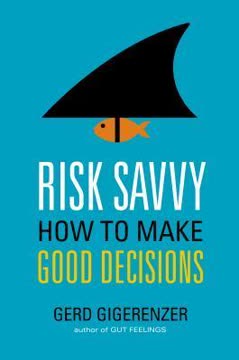
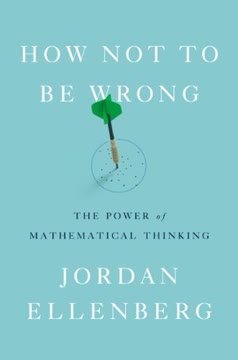
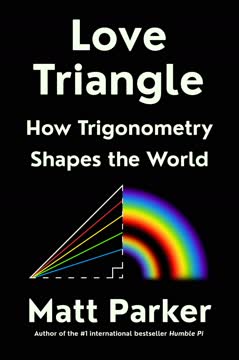
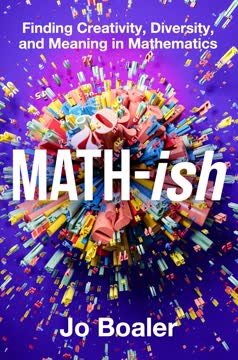
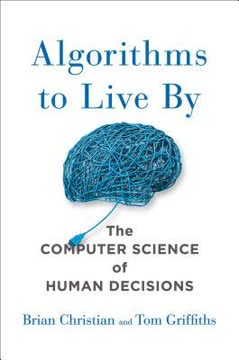
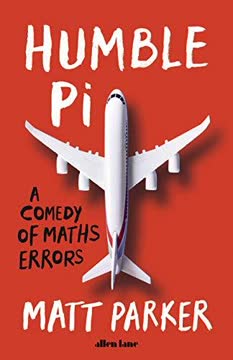
Download PDF
Download EPUB
.epub digital book format is ideal for reading ebooks on phones, tablets, and e-readers.
